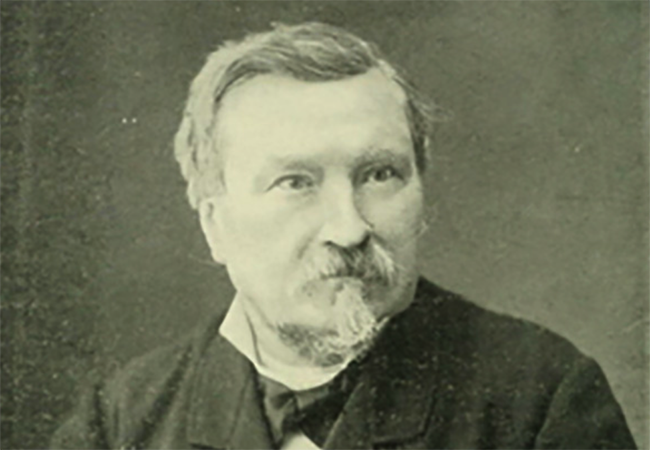On March 3, 1924, the 407-year-old Islamic caliphate was abolished, when Caliph Abdülmecid II of the Ottoman Caliphate was deposed. The last remnant of the old regime gives way to the reformed Turkey of Kemal Atatürk. On the same day, the Free State of Fiume was annexed by the Kingdom of Italy.
On March 3, 1931, the United States adopted The Star-Spangled Banner as its national anthem.
Eight years later, in Bombay, Mohandas Gandhi began a hunger strike in protest at the autocratic rule in British India.
Belgian economist Gustave de Molinari (pictured) was born on March 3, 1819. Associated with French laissez-faire economists Frédéric Bastiat and Yves Guyot, he was the longest-serving editor of Guillamin’s Journal des économistes. Today chiefly known in the English-speaking world for his authorship of one article, “The Production of Security” (1849), he was, as Ludwig von Mises described, the most productive economist in his school. Despite this, and his worldwide recognition, only one of his many books was translated from the French into English during his lifetime, The Society of To-morrow (1904), his final book. Molinari died on January 28, 1912.
Man is an organism composed of vital, physical, intellectual, and moral forces. This matter and these forces, which form the individual and the species, can only be preserved and developed by the assimilation, or, to use the economic term, the consumption of materials and forces of like nature. Failing this consumption, their vitality wastes and is finally extinguished. But waste and extinction of vitality cause pain and suffering, and it is the stimulus of pain and suffering which impels man to acquire the materials necessary for the development and preservation of his life. All these materials are present in his environment, air, &c.; and nature gives him a small number free of cost. But with the exception of this minority they must be discovered, acquired, and adapted to the purposes of consumption. Man must be a producer.
Opening paragraph, The Society of To-morrow (1904).
In this final book, Molinari offered a political program he called the “free constitution of nationality.”
